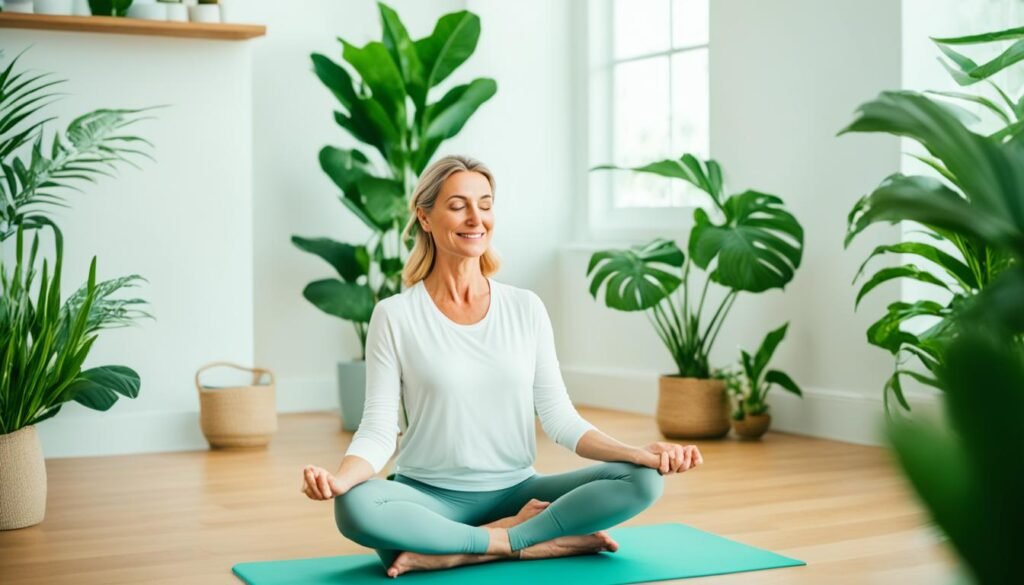In today’s fast-paced, high-stress world, prioritizing self-care has become more important than ever. Self-care refers to anything you do to maintain your mental, emotional, physical, social, and spiritual well-being. By incorporating healthy habits, stress management techniques, and mindfulness exercises into your daily life, you can enhance your overall personal well-being and promote greater work-life balance.
Self-care is essential for maintaining physical, mental, and emotional well-being. If you neglect to practice self-care regularly, you risk inviting burnout and compromising your overall health and happiness. In fact, self-care can be likened to calories, where each “unit” of self-care represents a unit of personal fulfillment. The more units of fulfillment you have, the higher your life satisfaction and the more motivated, energized, and purposeful you’ll feel in your endeavors.
By prioritizing self-care, you can combat societal pressures, prevent burnout, and maintain a healthy, balanced lifestyle. In the following sections, we’ll explore the importance of self-care routines, the various dimensions of wellness, and practical strategies for building sustainable self-care habits.
Understanding Self-Care
Self-care may be defined as the act of caring for oneself, including anything one does to maintain physical, mental, and spiritual health. This practice is not just about pampering or indulgence, but rather a way to promote overall well-being and prevent burnout. The definition of self-care encompasses a wide range of activities and approaches that individuals can utilize to support their mental health and wellness.
One way to conceptualize self-care is to compare it to calories, where one unit of self-care represents a unit of personal fulfillment. The more units of fulfillment one has, the higher their life satisfaction and the more motivated, energized, and purposeful they may feel in their endeavors. This perspective underscores the importance of developing self-care practices that align with one’s unique needs and preferences.
The Importance of Self-Care Routines
In a society that often values constant productivity and long work hours, the importance of self-care routines cannot be overstated. Engaging in self-care can help combat societal pressures and prevent burnout, which can have significant consequences such as anxiety, depression, resentment, and physical health problems.
Combating Societal Pressures and Burnout
When individuals prioritize self-care, they are better equipped to manage the demands and expectations of modern life. By taking time to recharge and rejuvenate, they can avoid the detrimental effects of burnout, which can profoundly impact both their personal and professional lives.
Benefits of Engaging in Self-Care
The benefits of self-care include improved physical and mental health, enhanced productivity and focus, and better relationships. Practicing self-care can reduce stress, boost energy levels, strengthen the immune system, and promote overall well-being. When you prioritize your own needs, you have more emotional resources to invest in your personal and professional relationships.
Improved Physical and Mental Health
Engaging in self-care routines can have a significant impact on both physical and mental health. By incorporating activities such as exercise, healthy eating, and mindfulness practices, individuals can reduce stress, boost their mood, and improve their overall well-being. This, in turn, can lead to better sleep, a stronger immune system, and greater resilience in the face of life’s challenges.
Enhanced Productivity and Relationships
When individuals prioritize self-care, they often experience increased productivity, focus, and energy levels. This can translate to better performance in both personal and professional settings. Additionally, by taking care of their own needs, people have more emotional resources to invest in their relationships, leading to stronger connections with friends, family, and colleagues.
Creating a Self-Care Routine
One of the most common barriers to creating self-care routine is a perceived lack of time. However, it’s essential to prioritize self-care, even if it’s just in small increments throughout the day. The key is to find self-care activities that work for your individual needs and lifestyle, and to make them a consistent part of your daily routine.
Finding Time for Self-Care
With busy schedules and never-ending to-do lists, it can be challenging to find time for self-care. But the truth is, even small steps can have a significant impact on your overall well-being. Consider incorporating self-care practices into your daily tasks, such as taking a mindful shower, enjoying a healthy meal, or going for a brief walk during your lunch break.
Examples of Self-Care Activities
There are countless ways to practice self-care activities and care for your physical, mental, and emotional well-being. Some ideas include:
- Taking a walk or engaging in other physical activity
- Practicing mindfulness or meditation
- Pursuing a creative hobby, such as painting, writing, or playing an instrument
- Getting enough quality sleep
- Eating nutritious, nourishing meals
- Connecting with loved ones or engaging in social activities
- Unplugging from technology and enjoying quiet time
Remember, self-care is a highly personal journey. Experiment with different self-care activities and find what resonates most with you. By making self-care a consistent part of your routine, you can cultivate a deeper sense of balance, fulfillment, and overall well-being.

Dimensions of Wellness and Self-Care
The National Substance Abuse and Mental Health Services Administration (SAMHSA) has identified eight distinct dimensions of wellness that encompass the various aspects of self-care:
emotional, environmental, financial, intellectual, occupational, physical, social, and spiritual
. Each of these dimensions plays a crucial role in promoting overall well-being and personal fulfillment.
Emotional Self-Care Practices
Emotional self-care involves tending to your mental and emotional needs. This may include activities like journaling, listening to uplifting music, or engaging in creative hobbies that allow you to express your feelings and find inner peace.
Environmental Self-Care Practices
Environmental self-care focuses on your immediate surroundings and how they impact your well-being. This can involve spending time in nature, decluttering your living space, or taking steps to reduce your carbon footprint and live more sustainably.
Financial Self-Care Practices
Financial self-care involves managing your money in a way that supports your overall well-being. This may include creating a budget, saving money for the future, or seeking professional financial advice to ensure your financial health.
Intellectual Self-Care Practices
Intellectual self-care is about nourishing your mind and cultivating a passion for learning. This can be achieved through reading, taking courses, or exploring new skills that challenge and stimulate your cognitive abilities.
Occupational Self-Care Practices
Occupational self-care encompasses the steps you take to ensure your work aligns with your values and supports your overall well-being. This may involve setting boundaries, seeking professional development opportunities, or pursuing work that truly fulfills you.
Physical Self-Care Practices
Physical self-care focuses on maintaining a healthy body through exercise, nutritious eating, and regular medical check-ups. By prioritizing your physical health, you can boost your energy levels, strengthen your immune system, and improve your overall quality of life.
Social Self-Care Practices
Social self-care involves nurturing your relationships and maintaining meaningful connections with friends, family, and community. This can include scheduling regular social activities, reaching out to loved ones, or seeking support from your social network.
Spiritual Self-Care Practices
Spiritual self-care is about finding a sense of purpose, meaning, and connection beyond the physical realm. This may involve practices like meditation, prayer, or engaging in activities that foster a deeper understanding of yourself and the world around you.
By addressing all eight dimensions of wellness through intentional self-care practices, individuals can cultivate a more holistic and balanced approach to their overall well-being.
importance of self-care routines
Self-care routines are vitally important for maintaining physical, mental, and emotional well-being. Without appropriate self-care practices, individuals may experience burnout, leading to negative consequences such as increased stress, anxiety, and depression. Engaging in self-care can improve physical health, boost energy levels, and strengthen the immune system.
Additionally, self-care enables individuals to be more productive, focused, and resilient, which can positively impact their personal and professional relationships. By prioritizing self-care, people can combat societal pressures, prevent burnout, and enhance their overall mental health and wellness.

| Benefits of Self-Care Routines | Impact |
|---|---|
| Improved Physical Health | Boosts energy levels, strengthens the immune system |
| Enhanced Productivity | Promotes focus, resilience, and overall well-being |
| Stronger Relationships | Enables individuals to be more present and engaged with others |
| Better Mental Health | Helps combat stress, anxiety, and depression |
Tailoring Self-Care to Your Needs
Self-care is a highly personal and individual experience, as everyone has unique needs, preferences, and circumstances. What constitutes self-care for one person may not be the same for another. The key is to find self-care practices that resonate with you and that you can consistently incorporate into your daily life.
Self-Care as an Individual Experience
Practicing tailoring self-care to your individual experience is crucial for ensuring it becomes a sustainable and meaningful part of your daily routine. This may involve reframing everyday tasks, such as making your bed or taking a mindful shower, as acts of self-care. By customizing your self-care routine to your specific needs and lifestyle, you can create a holistic approach to your personal well-being.
Incorporating Self-Care into Daily Tasks
Finding ways to incorporate self-care into your daily tasks can help make it a seamless part of your lifestyle. Whether it’s taking a few deep breaths during a work break, savoring a healthy meal, or taking a moment to appreciate your surroundings, these small acts of self-care can have a profound impact on your mental, physical, and emotional health. By prioritizing self-care, even in the midst of your everyday responsibilities, you can cultivate a greater sense of balance and fulfillment.
Overcoming Barriers to Self-Care
One of the main barriers to practicing self-care is the perceived lack of time. However, it’s important to find ways to prioritize self-care, even if it’s in small increments throughout the day. This may involve creating a schedule, setting boundaries, and learning to say no to certain commitments. Consistency is key when it comes to self-care, as it takes time to develop healthy habits.
Finding balance between your self-care practices and other responsibilities can be challenging, but it’s essential for maintaining your overall well-being. Experiment with different approaches and be willing to adjust your self-care routine as needed to find what works best for you. By overcoming barriers to self-care and finding balance and consistency, you can cultivate a sustainable self-care routine that supports your mental, physical, and emotional well-being.
Building Self-Care Habits
Developing self-care habits can take time and effort, but the benefits are well worth it. To start, focus on building self-care habits in a gradual and sustainable way, rather than attempting to overhaul your entire lifestyle at once.
Start Small and Gradual
Begin by starting small and gradual with your self-care practices. This could involve setting aside a few minutes each day for meditation, taking a short walk during your lunch break, or keeping a gratitude journal. Incorporating these small, manageable steps into your daily routine can help establish a foundation for more consistent self-care habits.
Create a Plan and Stay Accountable
It’s important to create a plan for your self-care routine and stay accountable to it. This may involve tracking your progress or enlisting the support of a friend or family member. Having a clear plan and staying accountable can help ensure that your self-care practices become a sustainable part of your lifestyle.
Reframe Your Mindset
Finally, it’s crucial to reframe your mindset around self-care. View it as an essential part of your overall well-being rather than a luxury or indulgence. Embracing this positive mindset and understanding the importance of self-care will help you build lasting habits that support your physical, mental, and emotional health.
Conclusion
Self-care routines are vitally important for maintaining physical, mental, and emotional well-being. By prioritizing self-care through healthy habits, stress management, and mindfulness practices, individuals can combat societal pressures, prevent burnout, and enhance their overall quality of life. The benefits of self-care include improved physical and mental health, increased productivity and focus, and better personal and professional relationships.
While developing self-care habits can take time and effort, the long-term rewards are well worth it. By tailoring self-care to their individual needs and consistently incorporating it into their daily lives, people can build a foundation for sustained personal fulfillment and well-being. The importance of self-care routines for mental health and wellness, physical health, productivity, and relationships cannot be overstated.
By building self-care habits, one can create a positive feedback loop of increased energy, focus, and overall well-being. This, in turn, can lead to enhanced productivity, stronger relationships, and a deeper sense of purpose. Ultimately, prioritizing self-care is an investment in oneself, paving the way for a healthier, more balanced, and more fulfilling life.


